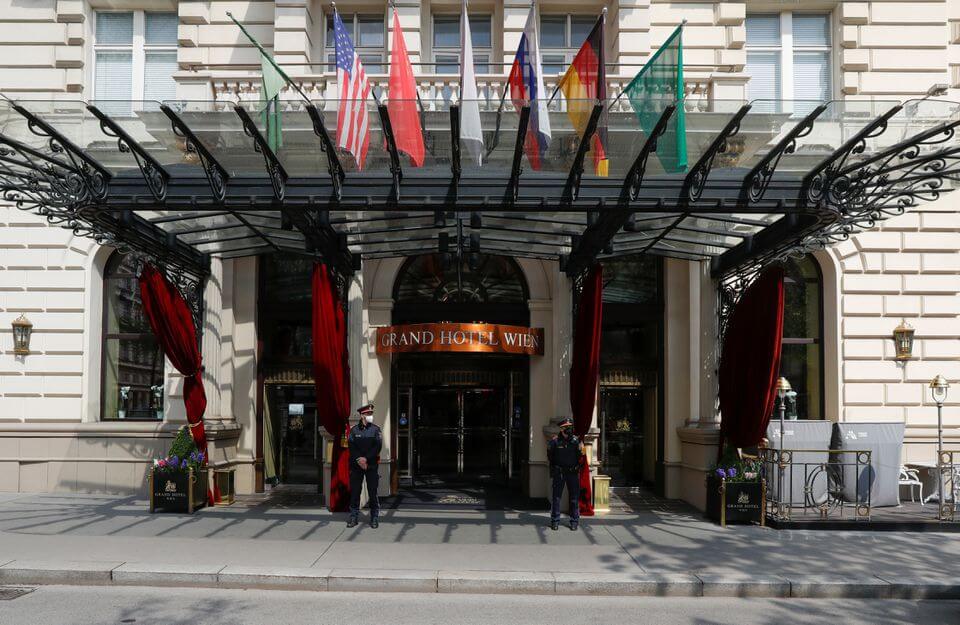Iran and Russia expressed optimism following the eighth round of nuclear negotiations between Iran and world powers resumed in Vienna, saying that a deal is possible if all sides show “good faith.” However, the European Union (EU) and the United States (US) remain unconvinced that any progress has been made.
Iranian Foreign Minister Hossein Amir Abdollahian told reporters in Tehran that the “talks are headed in a good direction” and said that an agreement is within reach. “If they show seriousness, in addition to the good faith, arriving at a deal soon and in the near future is conceivable,” he added.
Likewise, Mikhail Ulyanov, the head of the Russian delegation, said on Tuesday that the talks have seen “indisputable progress” and that the lifting of sanctions has been “actively discussed in informal settings.” Ulyanov had also said on Monday that the eighth round of talks was “businesslike” and focussed on “result-oriented discussions.”
Today in the course of #ViennaTalks on #JCPOA the working group on nuclear issues held a useful meeting. We observe indisputable progress. #Sanctions lifting is being actively discussed in informal settings. pic.twitter.com/GniRLV6CA7
— Mikhail Ulyanov (@Amb_Ulyanov) December 28, 2021
However, the EU had a different version of how the negotiations were conducted. The United Kingdom, France, and Germany released a statement on Tuesday saying that no substantial progress had been made. The statement said we are nearing the point where Iran’s escalation of its nuclear programme will have completely “hollowed out” the 2015 nuclear deal, formally known as the Joint Comprehensive Plan of Action (JCPOA). “That means we have weeks, not months, to conclude a deal before the JCPOA’s core non-proliferation benefits are lost,” it added.
Similarly, the US also cautioned Iran and Russia against being overly optimistic about restoring the nuclear deal. State Department spokesperson Ned Price told reporters in Washington DC on Tuesday that while there may have been some “modest progress” since the seventh round of talks began in November, it is “too soon to say how substantive that progress may have been.”
Price also called on Iran to “exercise restraint” its nuclear programme and “add real urgency” in Vienna. “Iran has […] been dragging its feet in the talks while accelerating its nuclear escalations. We’ve been very clear that that won’t work,” Price stated.
The West has expressed concerns about Iran’s recent nuclear moves and said that Tehran is acting in bad faith. It has also accused Iran of violating its commitments under the JCPOA and of taking escalatory measures that have resulted in a “nuclear crisis.”
Earlier this month, the IAEA accused Iran of enriching uranium with highly advanced centrifuges at its Fordow nuclear power plant. The nuclear watchdog said that Tehran has started the process of enriching uranium to 20% purity using a cluster of 166 advanced IR-6 machines at Fordow. The IAEA also reported in August that Iran has been enriching uranium to 60% fissile purity, closer to the weapons-grade level of 90%. The 2015 deal stated that Iran could only enrich uranium up to 3.67% for the next 15 years.
Iran and world powers resumed the seventh round of nuclear negotiations in Vienna to restore the JCPOA on November 29 after Tehran abruptly ended talks in June. Tehran has demanded that Washington remove all sanctions and guarantee that it will never withdraw from the deal once signed.

